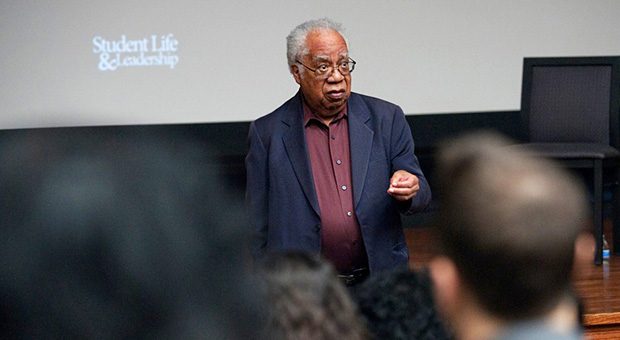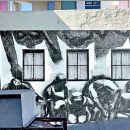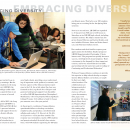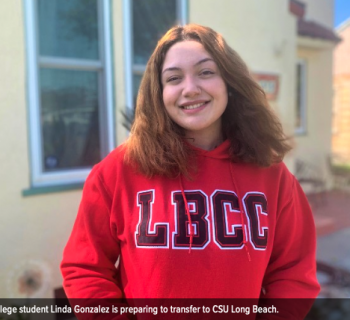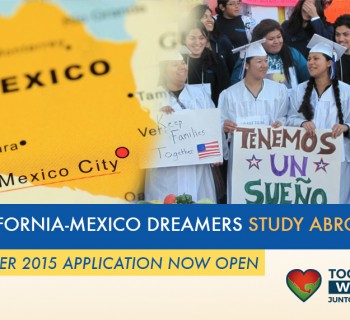By Shayne Schroeder, Inside CSULB ~ November 1, 2016
The “It” Factor.
You talk to any number of individuals whose lives Dr. Joseph White has influenced over the past six decades—and there are many—and to a person they will say he had “It.”
“My uncle started this in 1967 and his work, his legacy, has been about educational opportunity,” said Brett Waterfield, the director of Student Life and Development at CSULB, who in his current role and in his own way is carrying on White’s work.
“He was always an advocate for getting underrepresented students into doctoral programs. He’s got easily 1,000 mentees who have Ph.D.s. He calls it the ‘Freedom Train’ because he believes education is the passport to freedom,” ~ Brett Waterfield
White is many things—an educator, author, motivator and a real-life psychologist—but the words “pioneer” and “visionary” generally sneak somewhere near the top of the list when describing him. In starting up the Educational Opportunity Program (EOP), he was certainly both.
The program, which provides access and assistance to historically low-income and first-generation college students, was definitely a ground-breaking endeavor.
“He clearly was a pioneer in Long Beach, where the first EOP program was instituted,” said Erroll Parker, an early EOP student, whose first day on campus was literally White’s last before the mentor of many took his talents to San Francisco State and eventually to UC Irvine for a quarter of a century (1969-94). Still, the Los Angeles Community College transfer has fond memories of White, whom he came to know in later years. “Dr. White showed a lot of courage and fortitude to get EOP on campus and to get Southern Californian African-American students into places like Long Beach State. He was the pioneer when there was resistance to EOP, getting black students on campus. Joe fought the fight to get us here.”
White had an ability to tap into individual identities and helped students create a bridge that would take them from a world they knew to the one they were about to embark upon. He took students full of uncertainty and doubt and made them truly believe in themselves.
“Joe kind of helped us to give us that strength,” said Fernando Hernandez, a transfer from Harbor Community College who was the first student assistant to White when EOP started up. “He’d say, ‘Of course you can make it. You are here at a university. You’re a university student. You’re smart. You wouldn’t be here if you weren’t smart. Anything you want to do, you can do. So, let’s just roll up our sleeves and start figuring out how we’re going to get more students of color to Cal State Long Beach.’ So with that attitude and that kind of inspiration, we started EOP.”
Hernandez had other champions in his life, but maybe none as steadfast as White, who was always encouraging. Many feel it was his training as a psychologist that made him the way he was.
“The influence that Dr. White had on all of us, I think, was this sense that if you stick with it and you do your work and you turn your dreams into a vision and you take some steps and take some action, it’s going to make a big difference in your life and you are going to be able to do anything you want to do with your life,” said Hernandez. “That was kind of the message that he gave, and guess what? He was right. I think to myself, had I not come here, what would my life be like today?”
Hernandez went on to get a Ph.D. and had a long career at Cal State Los Angeles where he served as department chair three times, the assistant dean for a few years and as a member of the Academic Senate.
Willie Elston, another early EOP student, said that without question White was a serious role model not just for him, but for many, and had the ability to communicate with individuals regardless of their background. His encouragement eventually led Elston to pursue a doctorate at UCLA.
“He had the ‘It’ factor,” joked Elston, who served as CSULB’s director of Upward Bound for 13 years. “He was just able to make you feel comfortable and also encourage you. He showed you the opportunity and then aided you in getting it done. He said, ‘It’s going to require some work, but I think you can get it done.’ So he was always reaffirming. I guess being a psychologist, that’s what he does.”
Make no mistake, this was no free ride White was offering. Those in EOP were expected to work hard and hit the books. Squandering such an opportunity would be frowned upon. “They would bring senior personnel in to say, ‘Look, you’re here to take care of business and not screw around.’ They were always cajoling us,” said Ron Arias, another early EOP student, who served as a counselor and recruiter for the program. “They were always trying to bring in role models who would inspire us to try and stay on course. It was always about helping us find the right balance.”

Dr. Joseph White (r) and nephew Brett Waterfield.
He remembered that most EOP students received work-study assignments as part of their admission package, which for many provided their first taste of real money.
“Our monthly check for working 15-20 hours a week was like $125,” said Arias, who came to CSULB in January 1969 from the College of the Desert. “We had some kids who were super poor and had never had any money before, so when they got their check some of those guys went crazy. Serving as counselors, we’d have to go in and say, ‘Look, this is your food money for the whole month and you need to make it last.’”
Arias went on to have a 24-year career with the City of Long Beach, including 12 years as the Director of the Public Health for the City of Long Beach.
“For many of us EOP changed the world,” he said. “It was my rebirth as an individual, as a Chicano student. I really felt it was important for us and that we had the responsibility to demonstrate that we could in fact do this right and be successful. Without EOP I’m probably not here. It’s as simple as that. It couldn’t be any more fundamental to my career and my personal life, for which I will always be grateful.”

